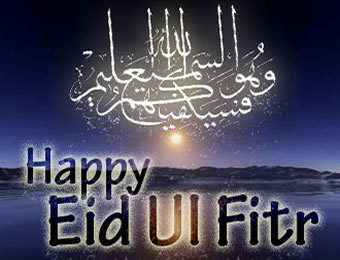Today, across the globe, Muslim faithful celebrate Eid-ul-Fitr, in diverse circumstances and situations but with deep gratitude to Almighty Allah for a glorious season. They are fully conscious that it is a day of thanksgiving following the worship and supplications in the month of Ramadan, a most blessed month that hosts night of power (Layla-tul-Qadr). For the past 30 days, avoiding all fleshly pleasures and looking steadfastly towards Allah and seeking the good of all humanity, Muslim faithful have observed one of the five pillars of Islam, devoting themselves to prayer, fasting and charity, even while carrying out essential daily duties.
Of course, today, there are family gatherings and feasting, but the emphasis remains the giving of alms (zakat). In Nigeria in particular, this year’s Eid-ul-Fitr is indeed a remarkable one coming in a period of serious socio-economic challenges, over which abiding faith in the Almighty still must triumph. The last 30 days have been a period of self-denial within a general climate of ready-made denial and want occasioned by collapsing social infrastructure, reduced spending power, and anguish. The ongoing celebrations are therefore fully deserved and significant.
For the past 30 days and despite the adverse national circumstances, Nigeria’s Islamic faithful have embraced charity driven by the belief that everything belongs to Allah and therefore nothing should be hoarded, and have reached out to the needy and the downtrodden, building for themselves and for all humanity a better society and a glorious hereafter. Yet, and here is the heart of the matter, the lessons of sacrificial giving, brotherliness and solidarity with neighbours need not end with the season. They are necessary to the blessedness of everyday living and must be embraced as regular features of life. That is why Eid-ul-Fitr is, and ought to be for every Muslim, more than a symbolism.
Having abstained from fleshly pleasures for a whole month, many easily fall prey to a horrible tendency to surpass the pleasures they pursued prior to the fasting period, proving themselves to be excluded from the congregation of the faithful who aspire, always, to abide by the commandments of God. Islam, after all, is submission to Allah’s will. Indeed, of what value is fasting devoid of sober reflections post-Ramadan? Surely, this is one question that ought to engage the attention of all right-thinking Muslim faithful in Nigeria, and ought to form the basis for greater introspection and delicacy in running the business of everyday living. Anyone who is a cheerful giver during Ramadan ought also to be a cheerful giver afterwards, and being protective and kind to one’s neighbours certainly ought to be a year-long preoccupation, if society must advance beyond the present rancour, acrimony and violence that seem to characterise human existence.
We urge Nigeria’s Muslim faithful, as they have done in the past 30 days, to continue to offer prayers to Allah to guide the nation’s leadership at all levels, because the leadership question remains evidently poignant and abundantly pertinent. They must also offer advice and let their voices be heard whenever the political leadership appears to be tilting the nation towards the precipice. While Boko Haram, one of the world’s deadliest terrorist organisations, appears to be succumbing to the superior firepower of the nation’s Armed Forces, there are mutant groups such as the nomadic herdsmen that threaten to surpass the bestiality for which the latter has justly acquired opprobrium from all right-thinking citizens.
Worse still, the nation’s economic condition, already worsened by the woes of the naira in the international market following the persistent global oil crisis, appears headed for the rocks courtesy of the attacks on oil installations by a new militant group, the Niger Delta Avengers. And neither has corruption birthed by loopholes in national institutions such as the civil service and even the justice administration system been significantly tamed, even though the current administration has set itself the goal of waging a decisive war on graft. The socio-economic and socio-political circumstances that birth terrorism, corruption and other vices must therefore continue to be meaningfully engaged so that a better Nigeria can emerge in the foreseeable future. Muslim faithful, as indeed people of all faiths, also owe the nation a duty to lead aright whenever they find themselves in positions of authority, and to demonstrate the virtues of nobility, kindness and moral uprightness that true religion requires of all faithful.
Meanwhile, let the celebrations go on. We wish our Muslim faithful happy Eid-ul-Fitr!






